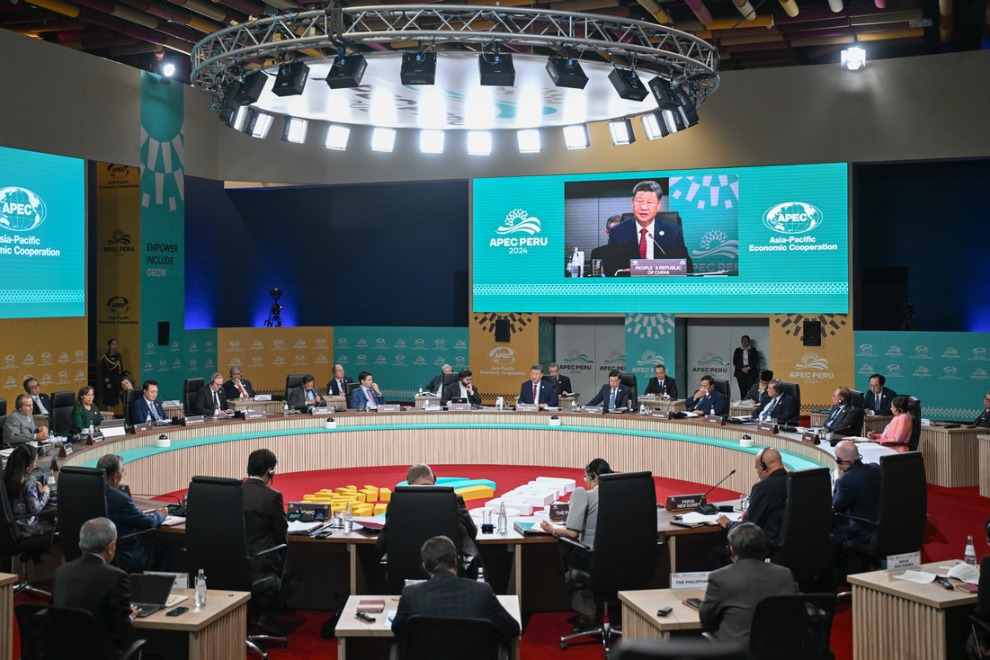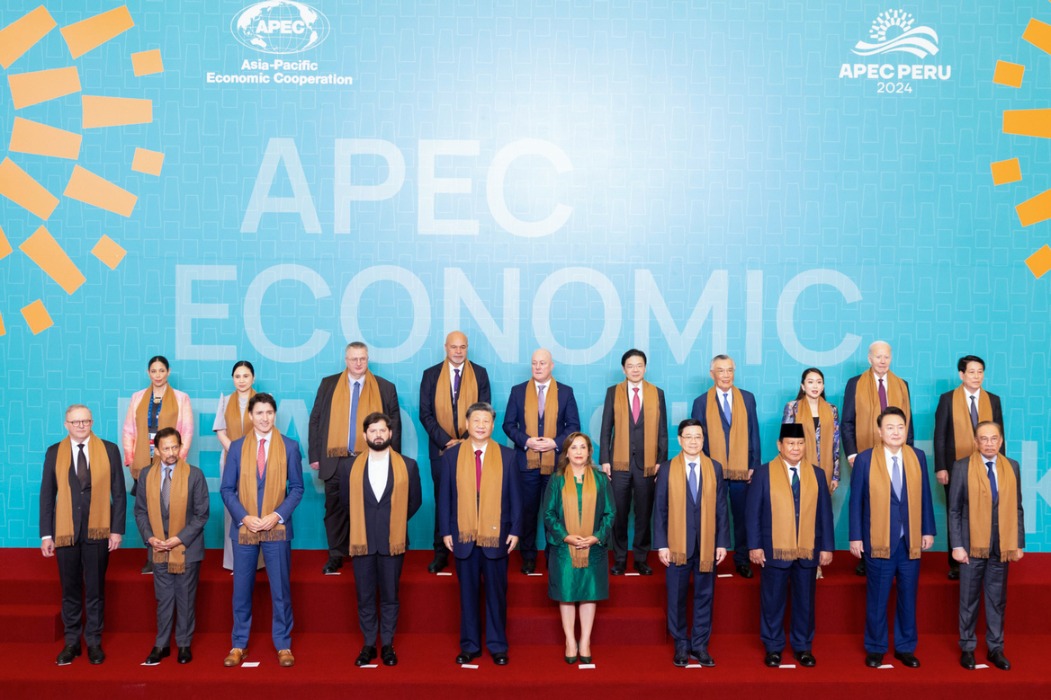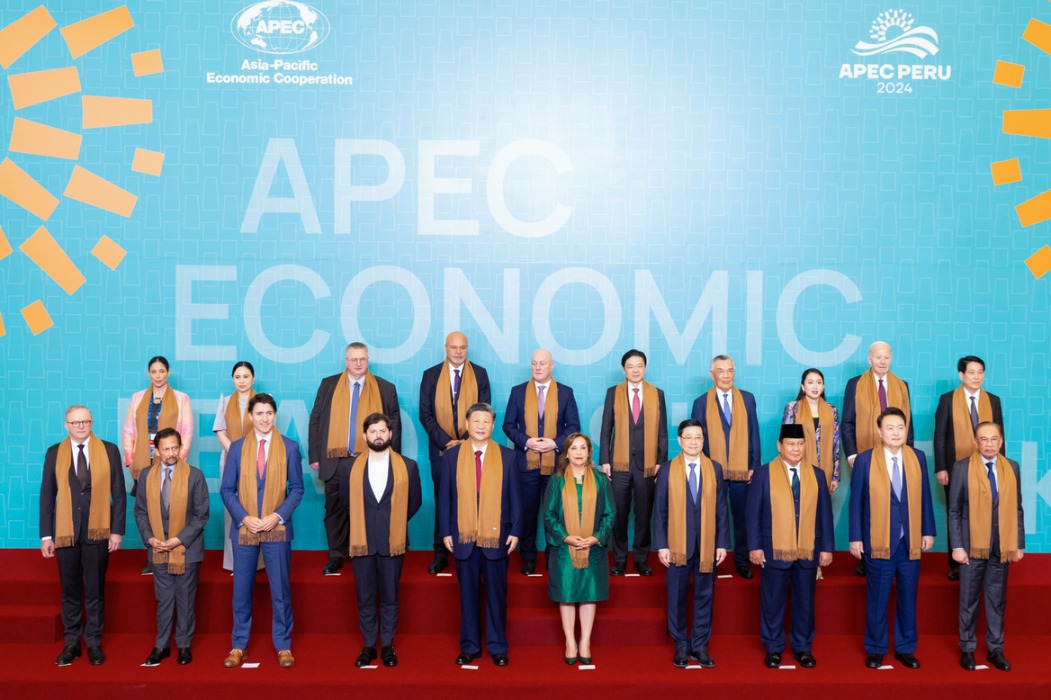Xi: China's goal is for stable ties with US after election

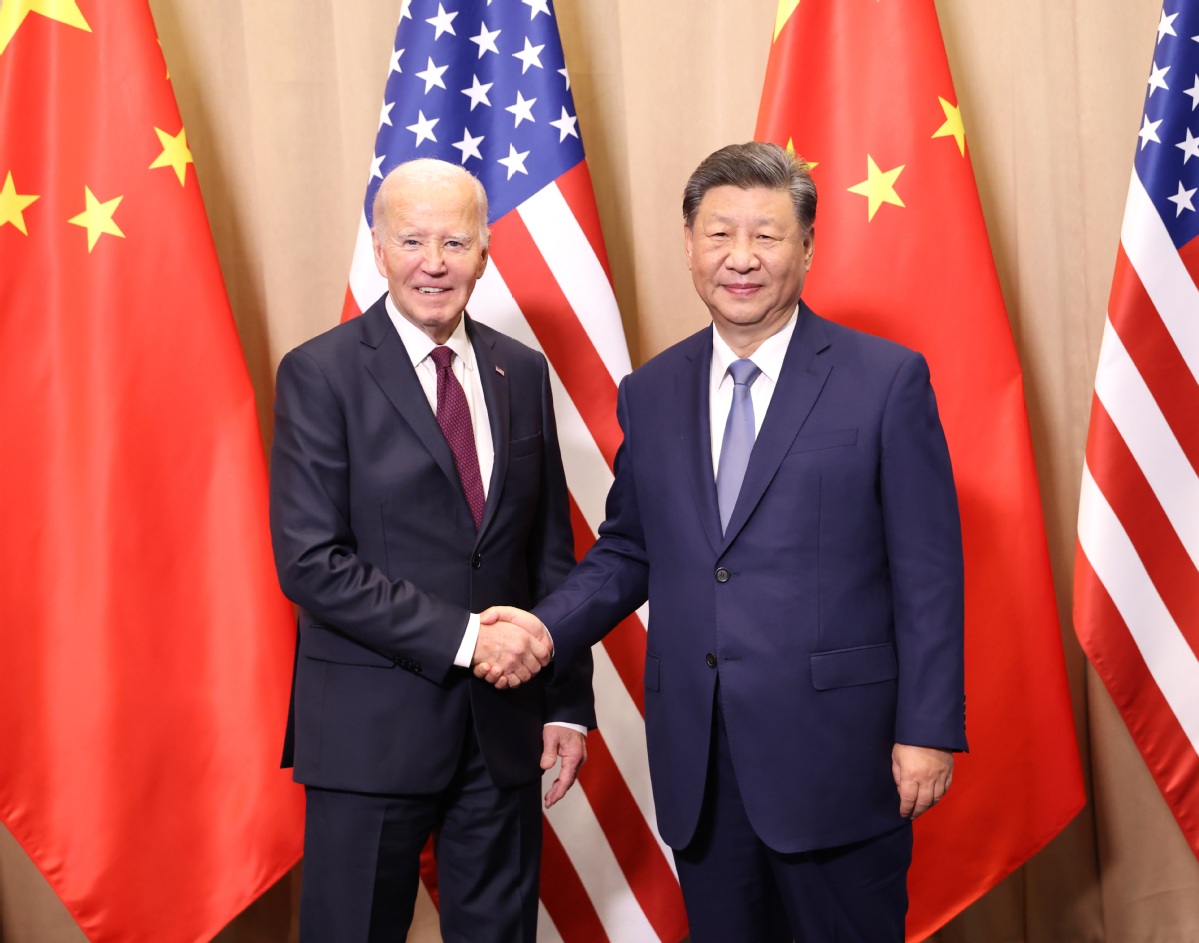
President Xi Jinping reiterated on Saturday that Beijing's policy goal is for a stable, healthy and sustainable China-US relationship after the US presidential election, saying that the nation will strive for a steady transition in bilateral relations for the benefit of the two peoples.
In talks with US President Joe Biden in Lima on the sidelines of the 31st APEC Economic Leaders' Meeting, Xi stressed that China is ready to engage in dialogue, expand cooperation and manage differences with the United States so as to sustain hard-won momentum toward stability in China-US relations.
Xi called on both nations to continue to explore the right way for two major countries to get along well with each other, realize long-term, peaceful coexistence on this planet, and inject more certainty and positive energy into the world.
The meeting between Xi and Biden, their third during Biden's presidency, came one year after their summit in San Francisco, which led to heightened high-level exchanges and interactions, further cooperation in counternarcotics, climate change and AI, and stronger people-to-people links.
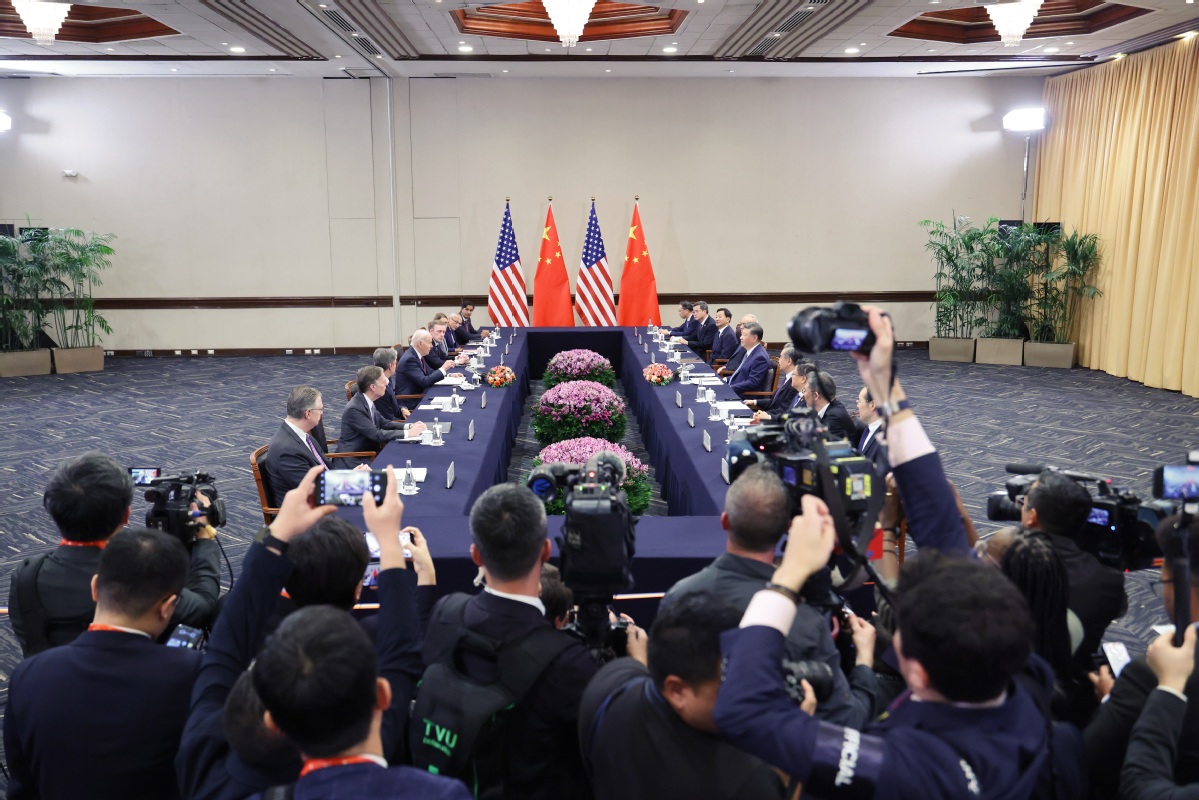
Xi reviewed the key experiences from bilateral ties over the past four years from seven aspects, highlighting the significance of upholding a correct strategic perception and matching words with actions.
"A new Cold War should not be fought and cannot be won. Containing China is unwise, unacceptable and bound to fail," he said.
He stressed that China has always honored its words, and if the US side always says one thing but does another, it will be detrimental to its own image and undermine trust between China and the US.
As two major countries, neither China nor the US should seek to remodel the other according to one's own will, suppress the other from the so-called "position of strength", or deprive the other of the legitimate right to development so as to maintain its leading status, he continued.
Meanwhile, Xi underlined the Taiwan question, democracy and human rights, China's path and system, and China's development rights as the four red lines for the nation.
"They must not be challenged or crossed. These are the most important guardrails and safety nets for China-US relations," he said.
The president stressed that cross-Strait peace and stability and "Taiwan independence" separatist activities are as irreconcilable as water and fire.
He urged Washington to see clearly the true nature of Lai Ching-te and Democratic Progressive Party authorities in seeking "Taiwan independence", handle the Taiwan question with extra prudence, unequivocally oppose "Taiwan independence", and support China's peaceful reunification.
Xi also reiterated China's positions on economic and trade ties, science and technology, cybersecurity, the South China Sea and the Ukraine crisis. He stressed that China does not allow conflict and turmoil to happen on the Korean Peninsula.
Xi said that major-country competition should not be the underlying logic of the times, and only solidarity and cooperation can help humanity overcome current difficulties.
"In an age of a new round of flourishing sci-tech revolution and industrial transformation, neither decoupling nor supply-chain disruption is the solution; only mutually beneficial cooperation can lead to common development," he stressed.
He criticized the rhetoric of "small yard, high fences", which he said is not what a major country should pursue. "Only openness and sharing can advance the well-being of humanity."
Biden said Washington does not seek a new Cold War, and it does not seek to change China's system, with its alliances not targeted against China.
He also emphasized that his nation does not support "Taiwan independence", and it does not see its Taiwan policy as a way to compete with China.
The two presidents reiterated the seven-point common understandings on the guiding principles for China-US relations, namely treating each other with respect, finding a way to live alongside each other peacefully, maintaining open lines of communication, preventing conflict, upholding the United Nations Charter, cooperating in areas of shared interest, and responsibly managing competitive aspects of the relationship.













